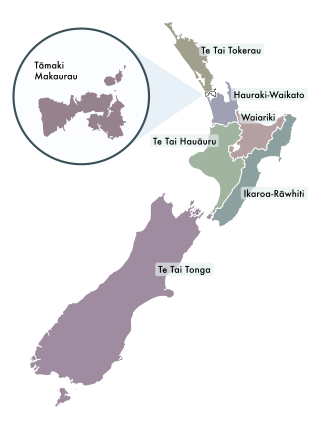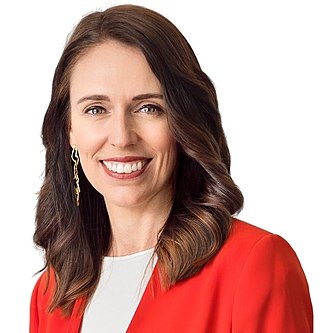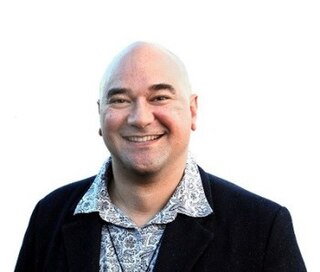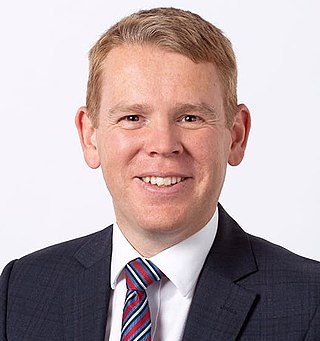Te Pāti Māori, also known as the Māori Party, is a political party in New Zealand advocating indigenous rights. It contests the specially reserved Māori electorates, in which its main rival is the Labour Party.

In New Zealand politics, Māori electorates, colloquially known as the Māori seats, are a special category of electorate that give reserved positions to representatives of Māori in the New Zealand Parliament. Every area in New Zealand is covered by both a general and a Māori electorate; as of 2020, there are seven Māori electorates. Since 1967, candidates in Māori electorates have not needed to be Māori themselves, but to register as a voter in the Māori electorates people need to declare that they are of Māori descent.

Hone Pani Tamati Waka Nene Harawira is a New Zealand Māori activist and former parliamentarian. He was elected to parliament as the member for the Māori electorate of Te Tai Tokerau in 2005 as the Māori Party candidate.

Te Tai Tokerau is a New Zealand parliamentary Māori electorate that was created out of the Northern Maori electorate ahead of the first Mixed Member Proportional (MMP) election in 1996. It was held first by Tau Henare representing New Zealand First for one term, and then Dover Samuels of the Labour Party for two terms. From 2005 to 2014, it was held by MP Hone Harawira. Initially a member of the Māori Party, Harawira resigned from both the party and then Parliament, causing the 2011 by-election. He was returned under the Mana Party banner in July 2011 and confirmed at the November 2011 general election. In the 2014 election, he was beaten by Labour's Kelvin Davis, ending the representation of the Mana Party in Parliament.
The Hapu Party was a Māori political party in New Zealand that was formed in August 2008 and contested the Te Tai Tokerau seat in the 2008 general election. The party was led by David Rankin, a leader of the Matarahurahu hapū of Northland.

The 2014 New Zealand general election took place on Saturday 20 September 2014 to determine the membership of the 51st New Zealand Parliament.
The Mana Movement, originally known as the Mana Party, is a former political party in New Zealand. The party was led by Hone Harawira who formed it in April 2011 following his resignation from the Māori Party. Harawira won the by-election in Te Tai Tokerau of 25 June 2011 for the Mana Party and retained the seat during the 2011 general election in November.
New Conservative is a conservative political party in New Zealand. Some opponents and observers have described the party's policies as far-right, though the party now states it has moved to a "more centrist" position under new leadership. It advocates for lower taxation, anti-abortion measures and austerity cuts.

The Internet Party was a registered political party in New Zealand that promoted Internet freedom and privacy. The party was founded in January 2014 with the financial support and promotion of internet entrepreneur Kim Dotcom, and was first led by former Alliance MP Laila Harré, then by citizen journalist Suzie Dawson.
The New Zealand Outdoors & Freedom Party, formerly the New Zealand Outdoors Party, is a registered political party in New Zealand. It is part of the Freedoms NZ umbrella movement. The party is co-led by Sue Grey and Donna Pokere-Phillips.

The 2020 New Zealand general election was held on Saturday 17 October 2020 to determine the composition of the 53rd parliament. Voters elected 120 members to the House of Representatives, 72 from single-member electorates and 48 from closed party lists. Two referendums, one on the personal use of cannabis and one on euthanasia, were also held on the same day. Official results of the election and referendums were released on 6 November.
Leighton James Baker is a New Zealand political candidate and businessman. He was leader of the New Conservative Party from 2017 to 2020, and has contested every general election since 2008, initially for the Kiwi Party, without success.

Elliot Ewen Pasione Ikilei is a New Zealand politician. He is a member of the New Conservative Party and has contested two general elections without success. He was the New Conservative Party's deputy leader from 2017 to 2020, and as its leader for six weeks in 2020 before announcing on 31 December that he had resigned the leadership.

The 2023 New Zealand general election to determine the composition of the 54th Parliament of New Zealand is planned to be held on 14 October 2023, after the currently elected 53rd Parliament is dissolved or expires. Voters will elect 120 members to the unicameral New Zealand House of Representatives under the mixed-member proportional (MMP) voting system, a proportional representation system in which 72 members will be elected from single-member electorates and 48 members from closed party lists.

This page lists candidates contesting electorates in the 2020 New Zealand general election.

The Advance New Zealand Party was a short-lived political party in New Zealand from 2020 to 2021. The idea was first unveiled in a newsletter from founder Jami-Lee Ross in April 2020. Ross has claimed that the party was a centrist and anti-corruption movement designed to appeal to voters "in the middle"; however, their main policies represent the political fringe rather than centre.
The New Zealand TEA Party is an unregistered political party in New Zealand. The party is led by John Hong. The party contested the 2020 general election, but did not win any seats.

Dr Anae Neru Asi Tuiataga Leavasa is a New Zealand politician. He was elected as a Member of Parliament in the House of Representatives for the Labour Party in 2020.
The Attica Project is an unregistered political party in New Zealand.

Shai Navot is a New Zealand lawyer, former crown prosecutor, and leader of The Opportunities Party (TOP) between 2020 and 2022. She previously served as deputy leader of The Opportunities Party during the 2020 election.













